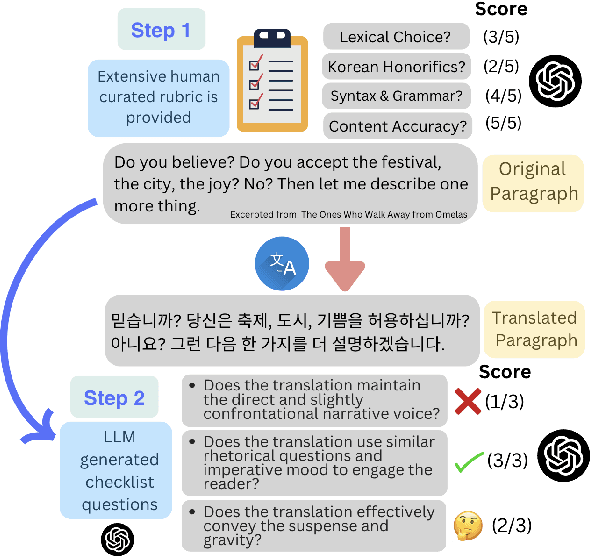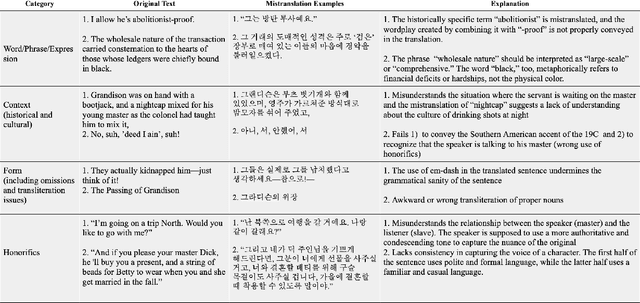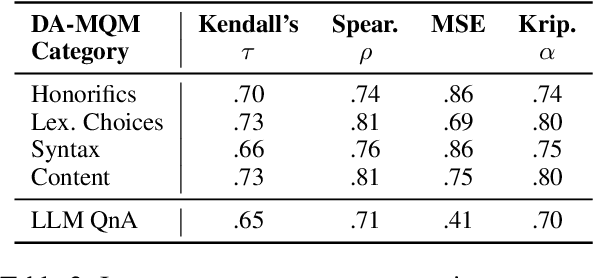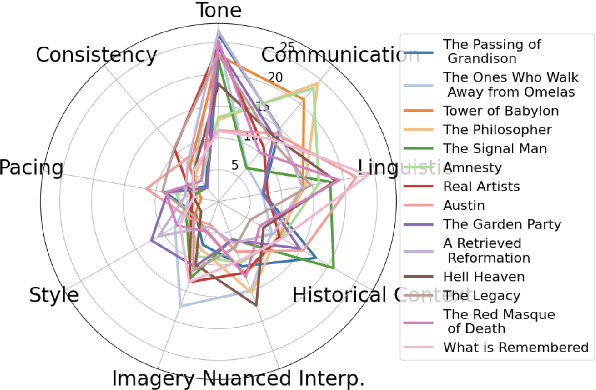Get our free extension to see links to code for papers anywhere online!Free add-on: code for papers everywhere!Free add-on: See code for papers anywhere!
Woori Jang
A 2-step Framework for Automated Literary Translation Evaluation: Its Promises and Pitfalls
Dec 02, 2024Figures and Tables:







Abstract:In this work, we propose and evaluate the feasibility of a two-stage pipeline to evaluate literary machine translation, in a fine-grained manner, from English to Korean. The results show that our framework provides fine-grained, interpretable metrics suited for literary translation and obtains a higher correlation with human judgment than traditional machine translation metrics. Nonetheless, it still fails to match inter-human agreement, especially in metrics like Korean Honorifics. We also observe that LLMs tend to favor translations generated by other LLMs, and we highlight the necessity of developing more sophisticated evaluation methods to ensure accurate and culturally sensitive machine translation of literary works.
Via
 Add to Chrome
Add to Chrome Add to Firefox
Add to Firefox Add to Edge
Add to Edge